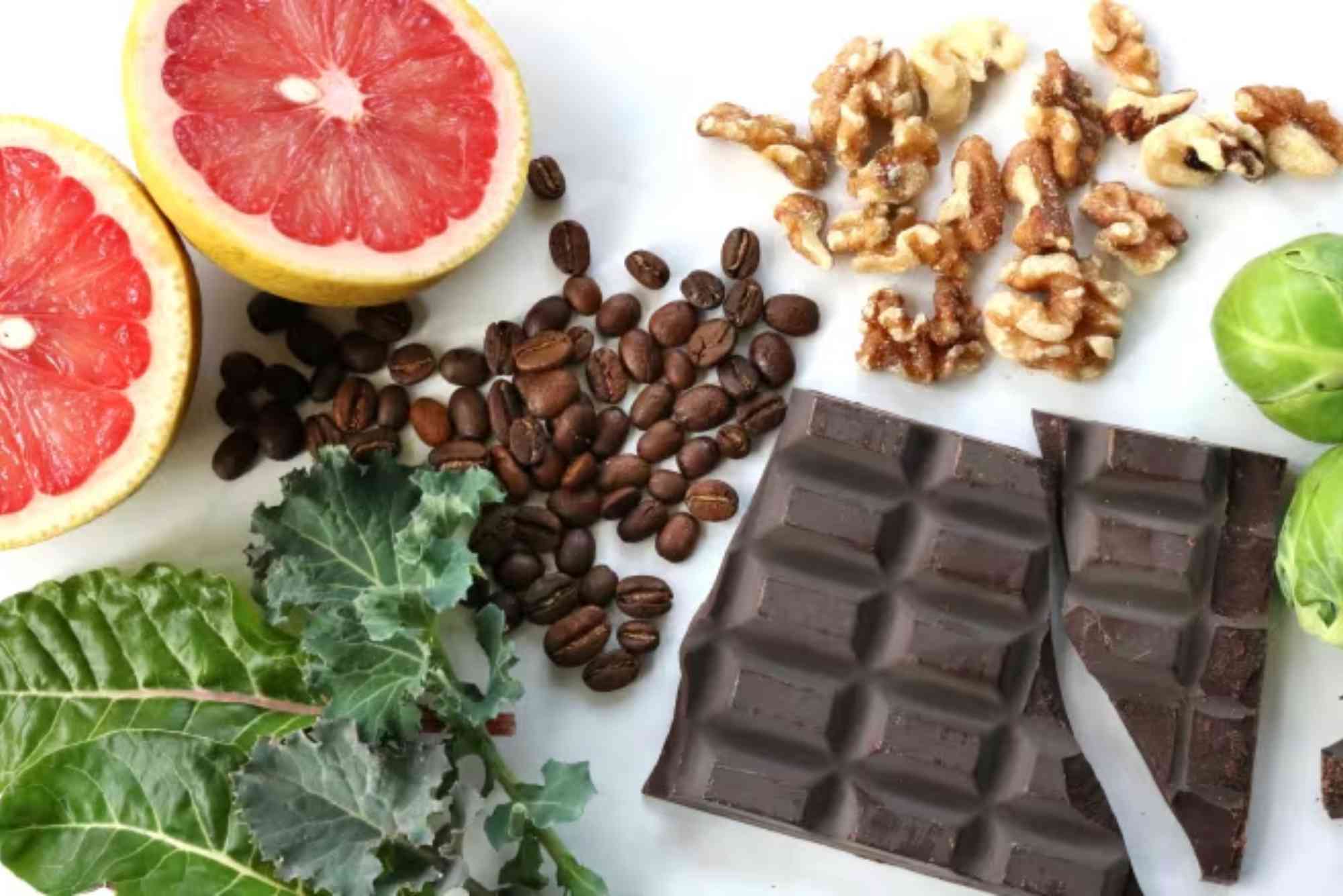Bitter foods might not top your list of favorites, but they play a crucial role in supporting your health. Often overlooked for their sharp taste, these nutrient-rich foods are nutritional powerhouses. Incorporating more bitter foods into your diet can improve digestion, balance blood sugar, and even aid detoxification.
In this article, we’ll explore the most beneficial bitter foods and the science-backed reasons why you should embrace their taste.
Why Bitterness Matters in Nutrition
Bitter-tasting compounds occur naturally in plants. These compounds serve as defense mechanisms in nature, but for us, they offer a host of health benefits. Although sweetness is more universally loved, bitterness often signals the presence of antioxidants, alkaloids, and polyphenols — all of which support your body in powerful ways.
The Role of Bitter Taste Receptors
Your tongue isn’t the only place that senses bitterness. Bitter taste receptors are also found throughout the digestive system. When activated, they stimulate enzymes and bile production, which enhances digestion and nutrient absorption. This helps explain why bitter foods are traditionally eaten before meals in many cultures.
The Science-Backed Health Benefits of Bitter Foods
Bitter foods have been used for centuries in traditional healing systems, including Ayurveda and Traditional Chinese Medicine. Modern research confirms that these foods contribute to overall well-being in several ways.
Improved Digestion
One of the most celebrated benefits of bitter foods is their impact on digestion. Bitterness triggers saliva and stomach acid production. This kickstarts the digestive process, helping your body break down food more efficiently.
Blood Sugar Regulation
Some bitter foods have natural compounds that help regulate insulin and glucose. This can be especially beneficial for people looking to maintain stable energy levels and avoid sugar crashes.
Liver Detox Support
Your liver loves bitter foods. Many bitter vegetables and herbs support liver function by enhancing detox enzyme activity. This allows your body to clear toxins more effectively.
Appetite Control
Interestingly, the bitterness in certain foods can naturally suppress appetite. This can help curb overeating and support healthy weight management.
Anti-Inflammatory Effects
Bitter compounds such as flavonoids and terpenoids are potent antioxidants. They help reduce inflammation, combat oxidative stress, and support overall cellular health.
Top Bitter Foods That Deserve a Spot on Your Plate
From leafy greens to herbal infusions, bitter foods come in many forms. Let’s explore some of the most beneficial ones and what makes them so good for your health.
Leafy Greens
Kale, arugula, dandelion greens, and mustard greens are all bitter by nature. These vegetables are high in fiber, vitamins A, C, and K, and essential minerals like calcium and iron.
Citrus Peels
While the fruit itself is sweet-tart, citrus peels — especially from lemons, limes, and grapefruits — contain bitter compounds called limonoids. These support liver health and can be used in teas or zest.
Bitter Melon
Popular in Asian cuisine, bitter melon has a sharp, distinct taste and is used medicinally to help manage blood sugar levels. It’s a powerhouse for metabolic health.
Dark Chocolate (High Cacao Content)
Dark chocolate with at least 70% cacao offers a complex bitter flavor. It’s rich in flavonoids that support heart health and brain function.
Coffee
Although coffee is commonly consumed for its caffeine, its bitterness is due to compounds like chlorogenic acid — a powerful antioxidant.
Herbal Bitters and Teas
Infusions made from gentian root, wormwood, or dandelion root are traditional digestive aids. Taken before meals, they stimulate digestion and liver activity.
How to Incorporate More Bitter Foods into Your Diet
If you’re not used to bitter flavors, start slow. Mix bitter greens into salads, add citrus zest to dishes, or sip a digestive herbal tea before meals. Over time, your taste buds can adjust, and you may even begin to crave these intense flavors.
Pairing Tips for Better Taste
To balance the bitterness, combine these foods with healthy fats, acids, or mild sweeteners. For example:
- Pair arugula with olive oil and lemon juice.
- Add a touch of honey to dandelion root tea.
- Mix bitter melon with garlic and coconut milk in curries.
These combinations make bitter foods more enjoyable without reducing their health value.
The Gut Connection: Bitterness and Microbiome Health
Recent research has shown that bitter foods may also support gut health. Many of these foods contain prebiotic fibers that feed beneficial gut bacteria. Plus, improved digestion from bitter foods means less bloating, better bowel movements, and enhanced nutrient uptake.
By keeping your digestive system in check, bitter foods indirectly contribute to better immunity and even mood — thanks to the gut-brain axis.
Common Myths About Bitter Foods
“Bitter means spoiled”
Not true. While bitterness can signal spoilage in certain contexts (like rancid oils), most naturally bitter foods are fresh and completely safe. The taste simply reflects the plant’s natural compounds.
“Kids and picky eaters can’t handle bitter foods”
While bitter flavors are an acquired taste, introducing small amounts early in life can help build tolerance. Think of adding greens into smoothies or using citrus zest in snacks.
“Bitter foods are too harsh for sensitive stomachs”
In fact, the opposite may be true. By stimulating digestive enzymes, these foods may ease symptoms like indigestion or bloating when introduced gradually.
Embrace the Bitter for Better Health
Bitter foods may not always be love at first bite, but their benefits are hard to ignore. From improved digestion to better blood sugar control and detox support, these foods pack a serious nutritional punch. Incorporating just a few servings each week can significantly impact your health.
FAQ: Bitter Foods — What People Want to Know
What are examples of bitter foods?
Common examples include arugula, dandelion greens, bitter melon, citrus peels, dark chocolate, and coffee.
Why are bitter foods good for digestion?
They stimulate digestive juices, helping your body break down food and absorb nutrients more efficiently.
Can bitter foods help with weight loss?
Yes, they may curb appetite and support metabolism, making them helpful for managing weight naturally.
How do you make bitter foods taste better?
Pair them with healthy fats, acids like lemon juice, or small amounts of natural sweeteners to balance the flavor.
Are bitter foods good for liver health?
Absolutely. Many bitter foods activate enzymes that help the liver detoxify and process waste more effectively.




